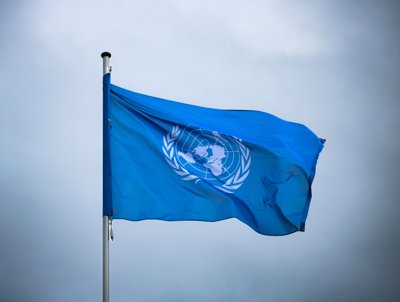Northumbria’s research enhanced context-specific understanding of female genital mutilation/cutting (FGM/C) issues, resulting in country-level improvements in anti-FGM/C efforts.
Issue
FGM/C is an internationally-recognised human rights violation. Its elimination is one of the targets under the United Nations (UN) Sustainable Development Goals. However, progress towards ending these harmful practices has been sporadic and the figures on the number of girls at risk used by the United Nations Population Fund (UNFPA) were outdated and incomplete.
Approach
Geographers at Northumbria University used innovative approaches to analysing successive household data to reveal FGM/C trends, geographic patterns, and risk factors among girls aged 14 and younger in Kenya.
Drawing on data from 17 countries across Africa and the Middle East, the research investigated the geographical variations of FGM/C practices over sustained periods of time (1990-2017) in low- and middle-income countries.
Northumbria researchers also conducted the first systematic interdisciplinary research study into the legal aspects of FGM/C on the global scale. This research demonstrated a significant gap between existing regulations and enforcement practices on the ground.
Impact
The research enabled UNFPA to revise their data on girls and women at risk of FGM/C. The estimate that 68 million girls will be at risk of FGM/C by 2030 globally, helped enable the UNFPA to influence the adoption of a resolution by the Human Rights Council to eliminate FGM/C.
Countries identified as having more girls at risk received more funding which has led to more impactful anti-FGM/C efforts. For example, in Egypt new funding directly led to a full-scale national vision in terms of education, communication, work with the ministry of health, and wider society’s perception of the issue. In Kenya, enhanced funding enabled national bodies and civil society to realise joint efforts to work towards the elimination of FGM/C.
In Guinea Bissau and Equatorial Guinea, the research has been used to train 200 prosecutors, 140 lawyers, and 200 judges. In Sierra Leone, research led to new evidence-based recommendations for advisers and judges. As a result, a record number of lawyers in Sierra Leone have taken action for compensation for victims of FGM/C, with more efforts being made by governments to enforce the law to protect victims.
The World Bank also used the research to develop a new policy on creating legislation that enabled victims of FGM/C to hold states liable for failures to protect them against the practices.
More information
Institution: Northumbria University
Researchers: Professor Ngianga-Bakwin Kandala, Paul Komba, Lunbanzadio Mavatikua, Chibuzor Nnanatu
Share this resource
This is an open access article under the terms of the Creative Commons Attribution License (CC BY NC 4.0), which permits use, adaptation, distribution and reproduction in any medium or format, provided the original work is cited and it is for non-commercial purposes. Please contact us for other uses.
How to cite
Royal Geographical Society (with IBG) (2023) Transforming international efforts to end Female Genital Mutilation/Cutting. Available at https://rgs.org/fgm Last accessed on: <date>
Featured image: Niklas Jeromin / Pexels
